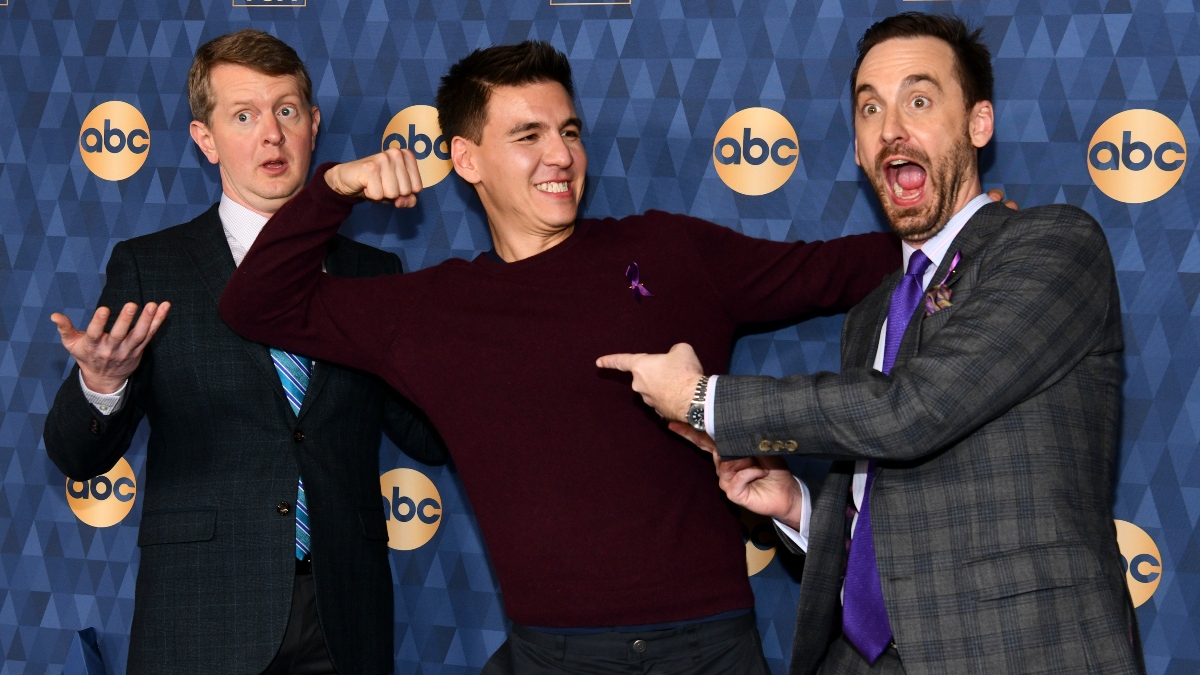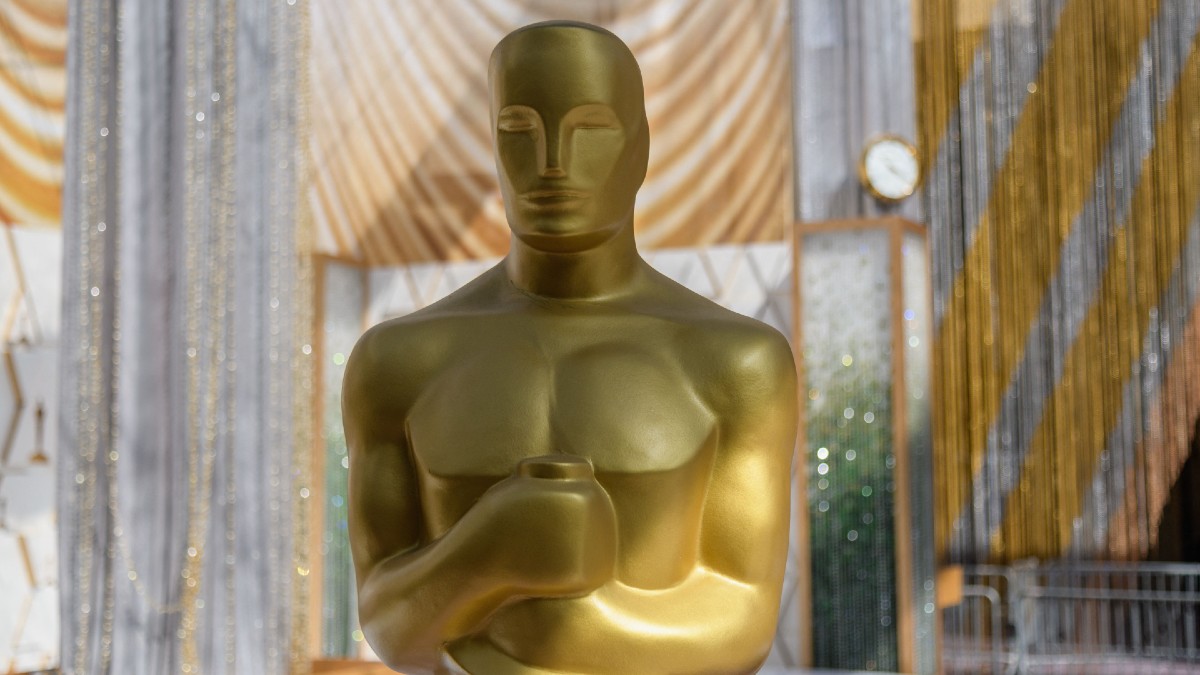- Ken Jennings won the Jeopardy! Greatest of All Time Tournament Tuesday night, beating James Holzhauer and Brad Rutter.
- Jennings didn't wager anything in the last Final Jeopardy round, but that was the right betting strategy given the situation.
Well, that was awesome. I wish the 'Jeopardy! Greatest of All Time Tournament' could've lasted longer — and perhaps it should have (more on this later) — but considering that I'm recapping for a betting site, I'm certainly not going to complain about a non-runaway ending that provided a uniquely interesting Final Jeopardy betting strategy.
In case you missed it, Ken Jennings won his third match of the Jeopardy! Greatest of All Time Tournament — and in doing so won the entire tournament — after correctly responding to the last Final Jeopardy clue … and wagering zero dollars. It's not like he had the match locked up, either.
He did enter the second game with a commanding lead, but an impressive push — propelled by a 20,200-point daily-double wager — by James Holzhauer in the second Double Jeopardy round kept the match from being a runaway.
What made last night's ending unique, though, was the two-game format of the tournament matches, which allows players to bet only what they made in the associated game in the Final Jeopardy round. Jennings was therefore unable to reach into the 65,600 points he'd accrued in the first game.
In other words, this was an extremely rare (maybe never-before seen?) case in which the player with the most points entering Final Jeopardy was not the player with the most potential points.
Here's the exact breakdown:
Jennings
- Game 1: 65,600 points
- Game 2 (entering Final Jeopardy): 23,000
- Combined (entering Final): 65,600 + 23,000 = 88,600
- Highest potential total score: 65,600 + 23,000 + 23,000 = 111,600
Holzhauer
- Game 1: 34,181 points
- Game 2 (entering Final Jeopardy): 44,000
- Combined (entering Final): 34,181 + 44,000 = 78,181
- Highest potential total score: 34,181 + 44,000 + 44,000 = 122,181
So as the Final Jeopardy category was revealed as "Shakespeare's Tragedies," the match sat completely in Holzhauer's hands. He was going to have no choice but to make a wager because he was losing, but he also had the ability to guarantee a win because of his 44,000-point second-game total.
Jennings, on the other hand, as confident as he may have been in his Shakespeare knowledge, had no reason to make a bet. Assuming Holzhauer knew the proper betting strategy (a pretty safe assumption given his occupation as a professional sports bettor), Jennings' response was not going to matter.
As it would turn out, Holzhauer gave just his second incorrect Final Jeopardy response out of eight this tournament. The only other one came in the form of a friendly remark to Alex Trebek in a runaway match where it didn't matter.
So where does all of this leave us? Jennings has been labeled the GOAT, but did he really deserve Match 4?
In each of the first three matches, Jennings came in under his expected daily-double count based on the number of clues he picked. That was certainly not the case in Match 4, however.
- Jennings: 48 clues picked (40%), 2.4 expected daily doubles, 4 actual daily doubles
- Holzhauer: 55 clues (45.8%), 2.75 expected, 1 actual
- Rutter: 17 clues, (14.2%), 0.85 expected, 1 actual
Jennings' board luck made up for itself last night, and it most directly impacted Holzhauer, who collected just one of an expected 2.75 daily doubles. In the first Double Jeopardy round alone, Holzhauer held control of the board for 18 of 30 clues, and was unable to locate either of that round's daily doubles.
So with such a close finish despite Jennings' 4-to-1 daily-double advantage, there's definitely a case to be made that he was lucky to win Match 4.
>> Sign up for The Action Network's daily newsletter to get the smartest conversation delivered into your inbox each morning.
According to The Jeopardy! Fan, Holzhauer's Coryat score — a measure of points with no wagering (daily doubles and Final Jeopardy) involved — was significantly higher than Jennings': 48,200 compared to 37,400. In fact, that 48,200 score was the highest recorded in the whole tournament and the only one above the 40,000-point mark.
And whether or not that came in part due to a conservative approach from Jennings after establishing his Game 1 lead, Jennings definitely had no intention of allowing Holzhauer to control the outcome in the last Final Jeopardy round, so I'm willing to give Holzhauer almost all of the credit for that impressive figure.
From a broader, tournament-wide perspective, Jennings recorded a cumulative Coryat score of 146,000 to Holzhauer's 141,800 and Rutter's 61,400. (A player's Coryat score is what the score would've been without any wagering involved.)
Using that measure to judge expected wins, which, to be clear, is not always what it suggests, we'd have 1.67 for Jennings, 1.62 for Holzhauer and 0.70 for Rutter.
The verdict: For the first time in the tournament, I think this match went to the wrong player. That's not to take anything away from Jennings' boldness or betting strategy, which were both essentially perfect.
But as for which player would be most likely to win this match if it were replayed infinitely many times with random daily-double locations and Final Jeopardy clues, it's hard to argue that it wouldn't go to Holzhauer more often than Jennings.
In case you missed it:




















































